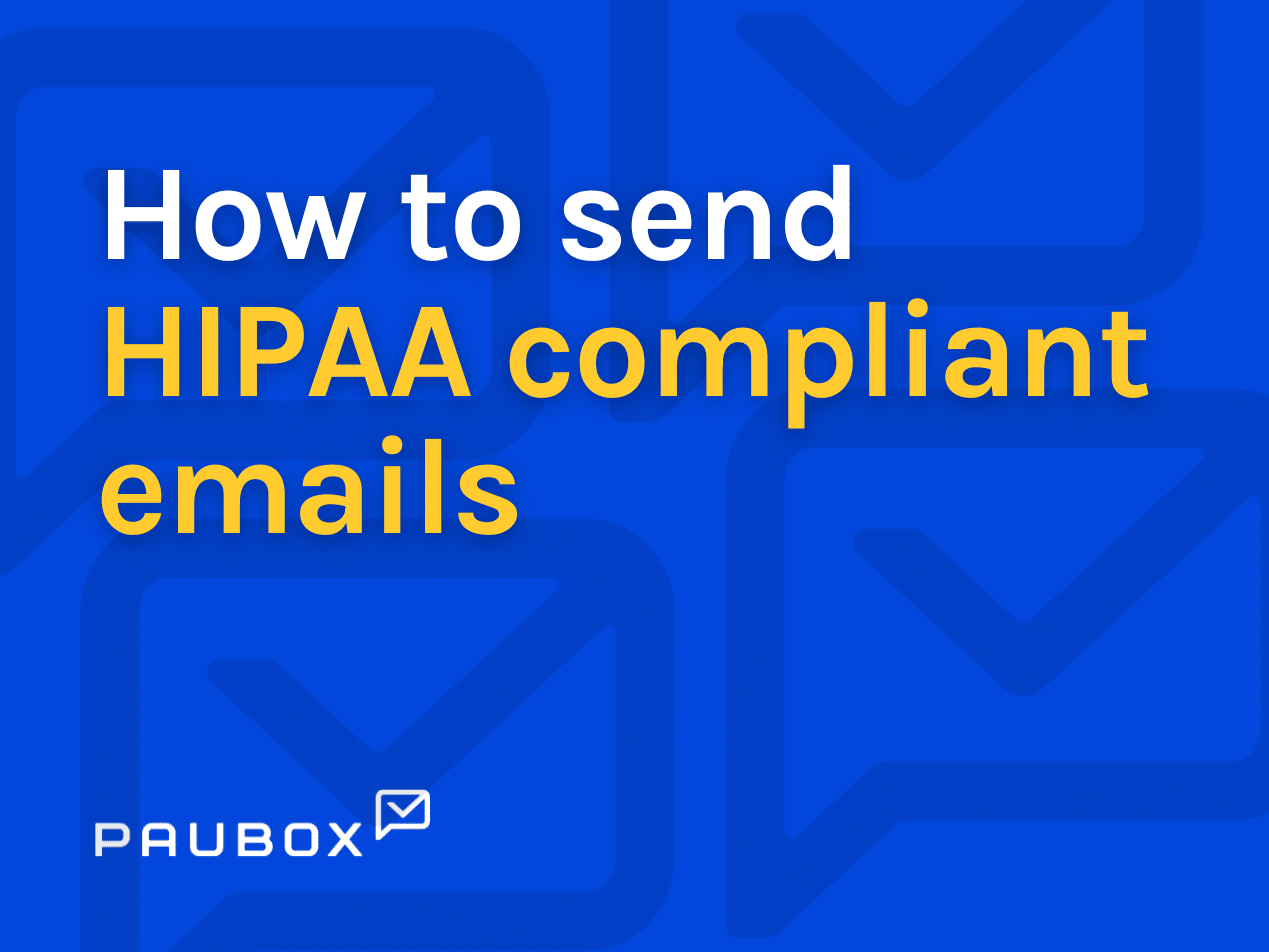2 min read
How to request patient feedback securely with HIPAA compliant email
Caitlin Anthoney November 26, 2024

Healthcare organizations can use HIPAA compliant emails combined with a well-timed approach, concise messaging, and ethical practices to request patient feedback, gaining insights that will help improve their services.
Requesting patient feedback
Get patient consent
The organization must obtain patients’ informed consent before sending feedback requests via email. When using a HIPAA compliant solution, confirm that the vendor will sign a business associate agreement (BAA).
Timing is everything
“It’s more effective to ask a patient to leave feedback directly after their appointment,” suggests Jonathan Tornetta, certified project management professional, in an article for PhysiciansPractice. Organizations that immediately request reviews can avoid the hassle of following up later on.
However, “If you or your staff are not reliably asking for patient reviews in person, you should try something else.”
More specifically, healthcare organizations can supplement these in-person requests with email reminders to maximize patient participation.
Write a patient-friendly email
HIPAA compliant email solutions, like Paubox, use advanced security measures, including encryption and access controls, safeguarding patients’ protected health information (PHI) during transit and rest. It allows providers to send personalized emails, acknowledging a patient-provider relationship with statements like “We value you as a patient.”
Emails should also be short, casual, and to the point. As a general rule, “if the email is longer than 2-3 sentences, your survey participation will drop.”
Use automation
Automated email systems can streamline the feedback process, sending requests right after an appointment. Healthcare organizations can also integrate HIPAA compliant emails into their electronic health records (EHR), incorporating feedback requests into their workflow.
Incentivize honestly and ethically
Healthcare organizations can also offer incentives that encourage patient feedback. “Offering to donate a fixed amount of money to a charity in exchange for a patient review is a great way to increase compliance and help a good cause,” says Tornetta.
Alternatively, consider raffles, discounts on out-of-pocket expenses, or small tokens like vending coupons.
Furthermore, organizations must:
- Ask only for honest feedback, not positive reviews.
- Treat every participant equally.
- Check their medical association’s ethical guidelines.
Related: Developing guidelines for HIPAA compliant email patient communication
FAQs
Who is subject to HIPAA?
HIPAA applies to covered entities like healthcare providers, health plans, and healthcare clearinghouses, as well as their business associates who handle protected health information (PHI).
What should providers look for in a HIPAA compliant emailing platform?
HIPAA compliant platforms must encrypt PHI during transmission and storage, and offer access controls, audit trails, and mechanisms for obtaining patient consent. Additionally, Paubox signs a business associate agreement, acknowledging their responsibility in safeguarding patients’ PHI.
What is a business associate agreement?
A business associate agreement (BAA) is a legally binding contract establishing a relationship between a covered entity under the Health Insurance Portability and Accountability Act (HIPAA) and its business associates. The purpose of this agreement is to ensure the proper protection of PHI as required by HIPAA regulations.
Subscribe to Paubox Weekly
Every Friday we'll bring you the most important news from Paubox. Our aim is to make you smarter, faster.



